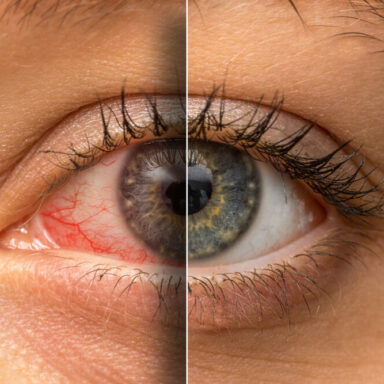What causes gritty and itchy eyes and how to treat them
Posted on 3 August 2022
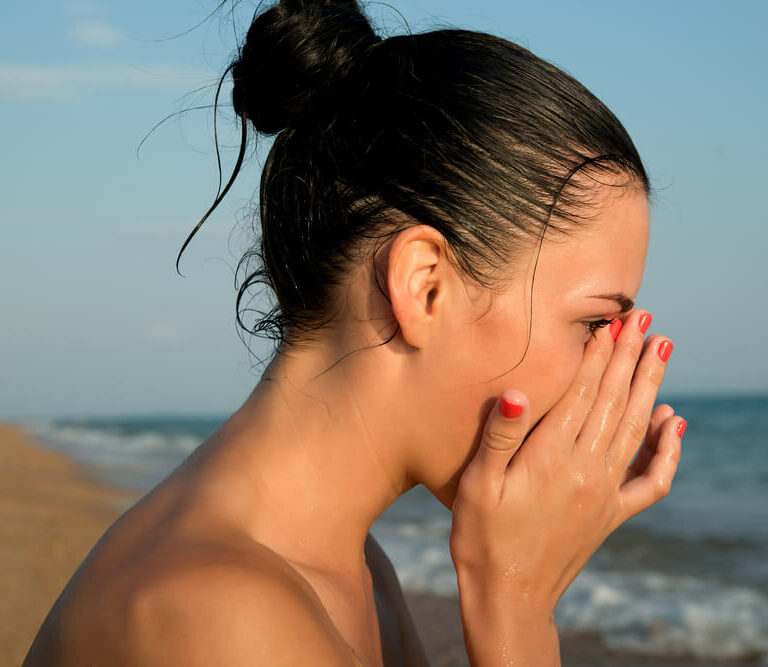
Sun, sea, sand and…gritty, itchy eyes.
From hay fever to sunburned eyeballs (yes, really), warmer weather can play havoc with our eyes, leaving them feeling dry and scratchy.
But your eyes can feel gritty at any time of the year. Chilly winter winds can take their toll on your eyes, as well as your skin, for example. Even sleeping with your eyes open, something which is pretty common, can make your eyes feel gritty.
The secret to treating, and soothing, gritty eyes is to know just what is making them so frustratingly itchy.
Here, we’ll have a look at some of the common causes of itchy gritty eyes and take you through some of the treatments.
Oh – and spoiler alert – one of the most important things to do is also one of the most difficult – don’t rub your eyes, however tempting it is!1
What causes gritty and itchy eyes?
Gritty eyes – the feeling or sensation that there’s a tiny grain of sand in your eye and it just won’t go away – are very common.2 Here, we’ll look at 10 possible causes.
1. Hay fever and other allergies
Atishoo! Hay fever is extremely common and while we often associate it with sneezing and sniffing, it can also make your eyes red, puffy and itchy.3
Other allergies, including reactions to dust and pets, can also leave your eyes red and itchy.4
If you are experiencing an itchy gritty sensation in your eye or eyes, it’s also worth considering whether cigarette smoke4 (your own or from others), exhaust fumes4 or even your favourite perfume5 is the culprit.
2. Swimming

If your eyes are red and itchy after going for a dip in the pool, don’t blame the chlorine – but the other swimmers! When chlorine combines with sweat or other nasties in the water including pee and yes, poo, it forms chemicals called chloramines that can irritate your eyes.6
Chloramines – and the irritation they cause – are a particular problem in indoor pools, which often aren’t as well ventilated as their outdoor cousins.
3. Sunburned eyes
Just as too much sun can leave skin pink and itchy, catching too many rays can make our eyes dry, red, itchy, swollen and sore.
In other words (and this isn’t for the squeamish), it’s possible to burn your eyeballs in the sun.
Luckily, photokeratitis (pronounced photo*ker*a*tie*tis), as medics call it, normally heals within a day or two, much like sunburn.7
4. Dry eye

Like its name suggests, dry eye is a condition where the eyes are drier than they should be. This can be because they don’t make enough tears or the tears evaporate too quickly.
Most cases are mild but, very rarely, the dryness can cause permanent damage to the surface of the eye.8
The symptoms of dry eye usually affect both eyes and can include:9,10
- Redness
- Itchiness
- A burning sensation
- Watery eyes
- Heavy feeling eyes
- Blurry vision
- Sensitivity to light
5. Winter weather

It’s not just too much sun that you need to watch out for – winter weather can also be troublesome. Although we might think of winter as being wet, Britain’s cooler months actually have some of the driest air, which can leave eyes dry and itchy. Cold winter winds can also irritate eyes.9
Top tip
If you can’t bear to turn down the central heating a tad or two, invest in a humidifier, to put some moisture back in the air and help keep your eyes happy.11
6. Conjunctivitis
A gritty sensation in your eyes can be a sign of conjunctivitis (pronounced con*junk*tiv*eye*tiss), one of the most common eye infections.12 It’s also known as the much catchier pink eye and it occurs when the conjunctiva, the lining of the eyelid, and the white of the eye, becomes inflamed.
It usually affects both eyes and other signs and symptoms include:13
- A discharge from your eyes and crusty eyelids or eyelashes
- Sensitivity to light
- More tears than usual
7. Sleeping with your eyes open
You may never have heard of it but it’s pretty common to sleep with your eyes open. In fact, about 20% of people – including babies – have nocturnal lagophthalmos (give it a go, it’s lag*a*thal*miss), to give it its proper name.14
They usually close their eyes most of the way when they sleep but not all the way. This can lead to the surface of the eye drying out as they sleep – and dry, gritty eyes.15
Did you know?
Many people who sleep with their eyes open are unaware of it and only find out they are doing it when someone tells them. The treatments range from taping your eyelids shut at night to surgery.15
8. Blepharitis
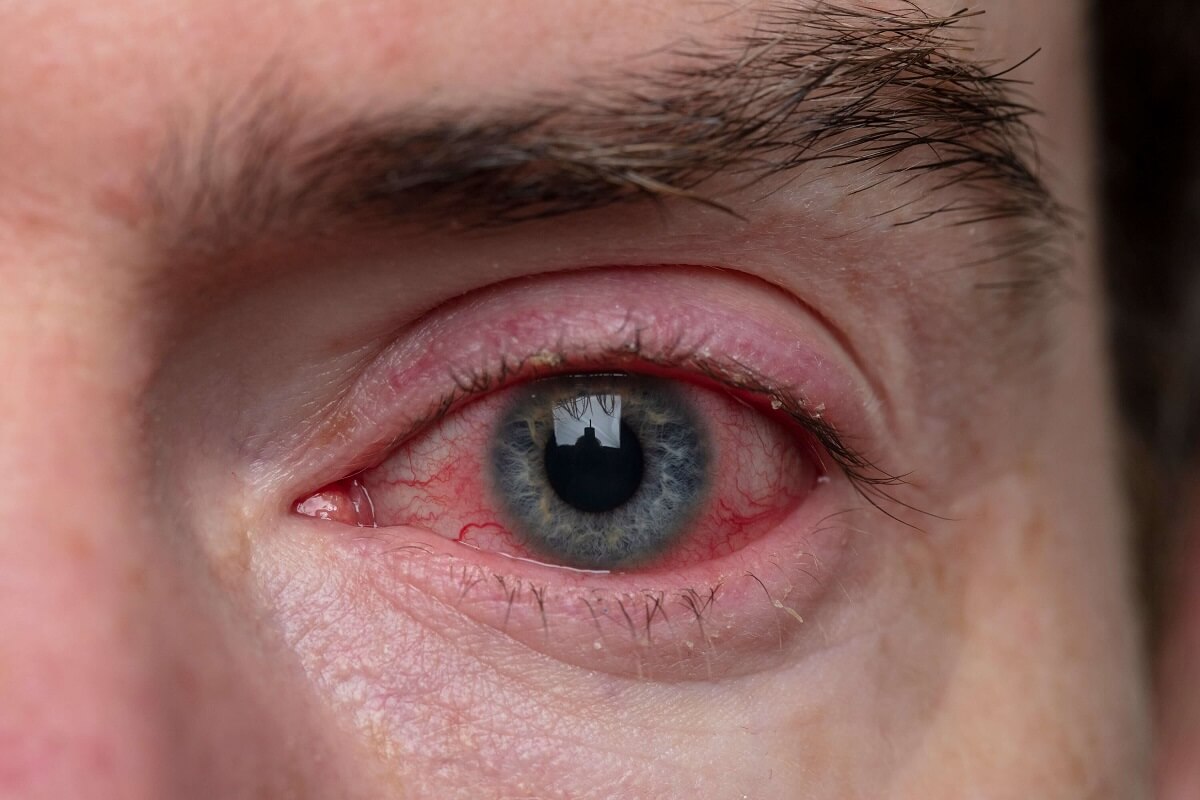
If the gritty feeling in your eyes is accompanied by red and swollen eyelids, you may have blepharitis.
Pronounced bleh*fuh*rai*thus, it’s very common16 and can be uncomfortable but usually isn’t serious.17 (You might want to hide under your duvet for a bit but that’s usually as bad as it gets!)
The signs and symptoms of blepharitis include:17
- Red, swollen and itchy eyelids
- Gritty or itchy eyes
- Red eyes
- Flakes or crusts around the base of the eyelashes
- Eyelids sticking together when you wake up in the morning
9. Vernal keratoconjunctivitis
Vernal keratoconjunctivitis, which is more easily referred to as plain old VKC, is an allergy that’s a bit like eczema of the eyes.18 Instead of affecting the skin, like eczema, VKC makes the outer protective layer of the eyes (known as the cornea) and eyelids becomes itchy and inflamed.19
VKC is rare and usually develops in childhood (it’s twice as common in boys as girls).20 Your doctor can recommend the best treatment for you.
Find out more in our blog on managing VKC.
10. A stye
A stye, a small, red, painful pimple that appears on your upper or lower eyelid, can create the feeling that something is in your eye. Styes are very common – anyone can get them at any age. They can be painful and stop you from feeling and looking your best but the good news is that they will normally go away on their own after a week or two.21
How to treat itchy and gritty eyes
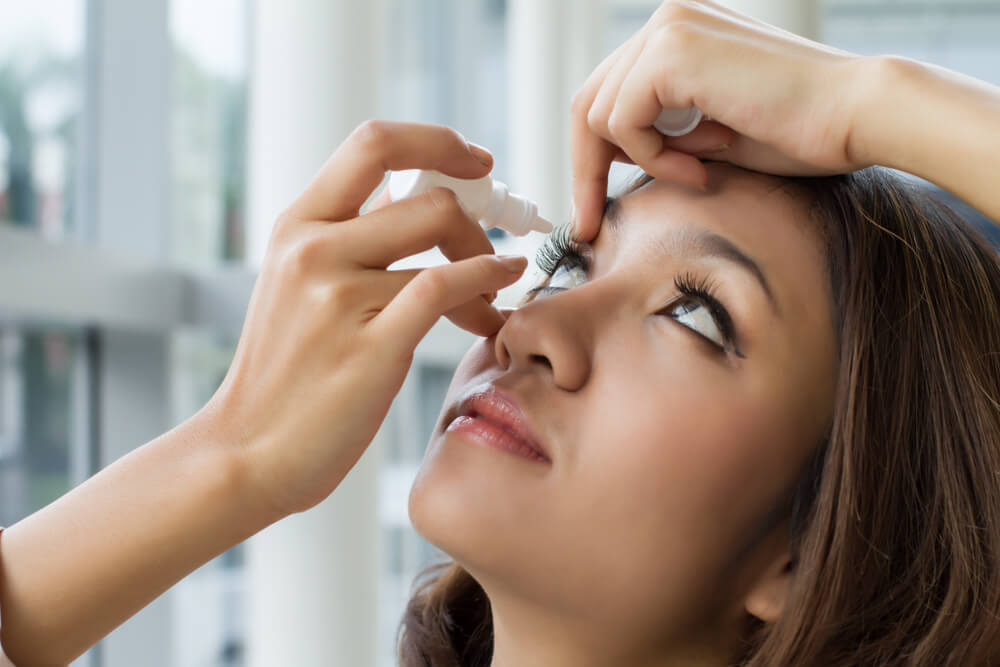
First things first – don’t rub your eyes, no matter how much you want to! While rubbing your eyes might feel rather good, it might also, unfortunately, make things worse. If you have hay fever, for instance, you might accidentally end up rubbing in more pollen.1
With that out of the way, you can try:
- If you have hay fever, your pharmacist can give you antihistamine eye drops to help with redness, itchiness and watering.22
- Managing pre-existing conditions, such as rosacea, dermatitis and dandruff, as this can help with blepharitis.
- Topping up your tears. Eye drops, such as Cationorm®can replenish your body’s supply of tears, rehydrate and quickly relieve the discomfort of dry eyes.
- Giving yourself – and your eyes – some TLC. A cold flannel placed over the eyes can if you have dry eye, hay fever or another allergy, conjunctivitis or sunburned eyes. If it’s a stye that’s troubling you, use a warm compress to speed the stye on its way.23
- Eye drops and gels that are designed to treat blepharitis and are available from your pharmacist without a prescription.
- If you accidentally get sun cream in your eyes, try to rinse it away with clean running water.
When should I see my doctor?
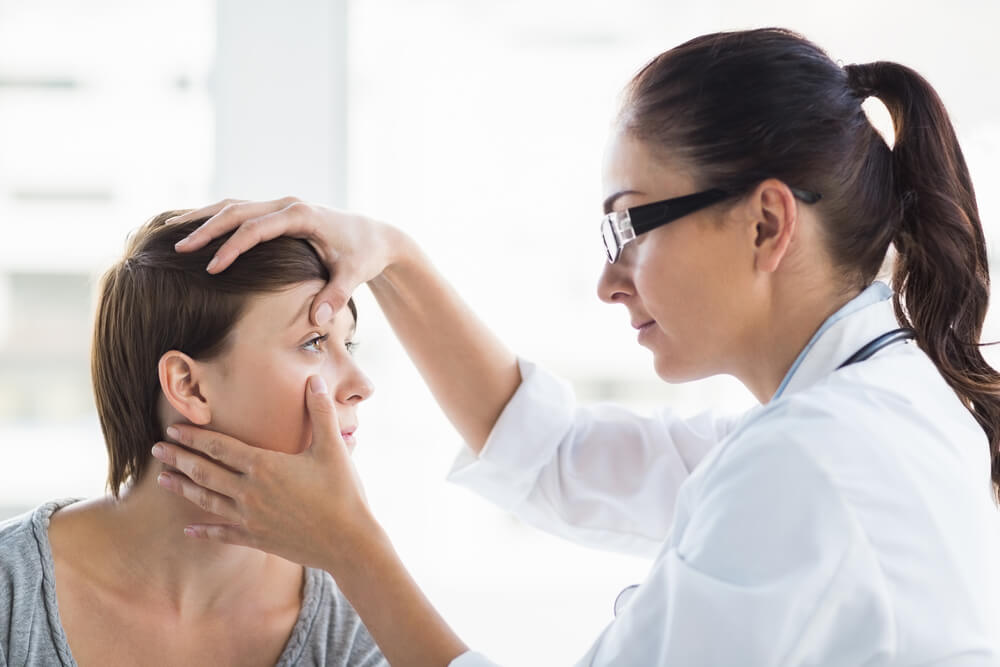
Ask your optician, ophthalmologist, GP or pharmacist for help if your symptoms don’t start to get better or if you are in a lot of pain or if you think there really is something stuck in your eye. You should also seek help if you have a thick discharge from your eyes, they are swollen, stuck together or you can’t keep them open. Changes to your vision, including blurriness, seeing halos around lights and finding that it hurts to look at bright lights, should also be checked out.2,24
How to prevent itchy gritty eyes
- If you have hay fever, wear wraparound sunglasses when out and about, to keep pollen out of your eyes, and avoid grassy areas (and cutting the grass!) in the early morning, evening and at night, when the pollen count is high.25
- Take regular screen breaks9 and swap your contacts for glasses for a few hours a day to help keep dry eyes away.26
- Eat a diet rich in vitamin A (it’s in meat eggs and dairy products) and omega-3 fats (try oily fish or walnuts).2
- Shelter your eyes on windy days by wearing sunglasses27 and rehydrate your eyes during cold, dry spells by using eye drops.
- Keep an eye on other sources of drying air. Angle the heating vents in your car so that the air isn’t being blown into your face and direct your hair dryer away from your eyes.27
FAQs about itchy and gritty eyes
Why are my eyes gritty when I wake up?
This could be due to lots of things, including dry eye, blepharitis and sleeping with your eyes open!
Why do my eyes feel gritty when I wear contacts?
Contact lenses can reduce the amount of oxygen that gets to the surface of the eye, which makes it harder for our eyes to make healthy tears and can leave them dry and scratchy.26
Are itchy eyes a symptom of Covid?
Some people with Covid do have itchy eyes – one UK study found that 1 in 6 Covid patients had itchy eyes. But, if itchy eyes is your only symptom, it’s likely it isn’t Covid.28
Are itchy eyes a sign of diabetes?
Sometimes. Lots of people with diabetes have dry eyes29 and dry eyes can make your eyes itchy. But dry eyes can be caused by lots of other things too.
Do tea bags help itchy eyes?
A compress made up of a tea bag soaked in warm water can help ease dry eyes, blepharitis and styes – all of which can make your eyes frustratingly itchy.30
P.S.
Of course, it’s always possible that the feeling that a bit of dust is stuck in your eye is caused by just that – a piece of sand, dust or dirt. Even the smallest speck of dirt can feel like a ginormous boulder. In some cases, blinking a few times or moving your eyes around with your eyelids closed will be enough to dislodge the dirt.31 But, other times, you’ll need to flush it out with clean water.
Fill a clean cup with lukewarm water, dunk your eye in it, then open and close your eye a few times. If this is tricky, rope in a friend. Get them to drop the water into your eye while you lie down on your side and hold your eye open.32


